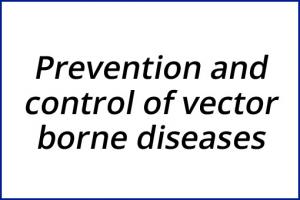- Chandigarh UT
- Creative Corner
- Dadra Nagar Haveli UT
- Daman and Diu U.T.
- Department of Administrative Reforms and Public Grievances
- Department of Biotechnology
- Department of Commerce
- Department of Consumer Affairs
- Department of Industrial Policy and Promotion (DIPP)
- Department of Posts
- Department of Science and Technology
- Department of Telecom
- Digital India
- Economic Affairs
- Ek Bharat Shreshtha Bharat
- Energy Conservation
- Expenditure Management Commission
- Food Security
- Gandhi@150
- Girl Child Education
- Government Advertisements
- Green India
- Incredible India!
- India Textiles
- Indian Railways
- Indian Space Research Organisation - ISRO
- Job Creation
- LiFE-21 Day Challenge
- Mann Ki Baat
- Manual Scavenging-Free India
- Ministry for Development of North Eastern Region
- Ministry of Agriculture and Farmers Welfare
- Ministry of Chemicals and Fertilizers
- Ministry of Civil Aviation
- Ministry of Coal
- Ministry of Corporate Affairs
- Ministry of Culture
- Ministry of Defence
- Ministry of Earth Sciences
- Ministry of Education
- Ministry of Electronics and Information Technology
- Ministry of Environment, Forest and Climate Change
- Ministry of External Affairs
- Ministry of Finance
- Ministry of Health and Family Welfare
- Ministry of Home Affairs
- Ministry of Housing and Urban Affairs
- Ministry of Information and Broadcasting
- Ministry of Jal Shakti
- Ministry of Law and Justice
- Ministry of Micro, Small and Medium Enterprises (MSME)
- Ministry of Petroleum and Natural Gas
- Ministry of Power
- Ministry of Social Justice and Empowerment
- Ministry of Statistics and Programme Implementation
- Ministry of Steel
- Ministry of Women and Child Development
- MyGov Move - Volunteer
- New Education Policy
- New India Championship
- NITI Aayog
- NRIs for India’s Growth
- Open Forum
- PM Live Events
- Revenue and GST
- Rural Development
- Saansad Adarsh Gram Yojana
- Sakriya Panchayat
- Skill Development
- Smart Cities
- Sporty India
- Swachh Bharat (Clean India)
- Tribal Development
- Watershed Management
- Youth for Nation-Building
Prevention and control of vector borne diseases

Start Date :
Feb 19, 2015
Last Date :
Mar 19, 2015
00:00 AM IST (GMT +5.30 Hrs)
Many vector-borne diseases are transmitted by arthopods (mosquitoes, ticks, mites etc) and have prevalent in India namely malaria, dengue, chikungunya, filariasis and kala azar and ...


Proper awareness of these diseases,prevention and precaution should be well known by each and every people. Apart from awareness more hospitals should be opened in rural areas because these types of diseases are mostly seen in rural areas also cheap and easy medicines should be provided to all.
We should bring health education in schools. Schools should organize seminars/quiz competitions to educate children and which in turn help ordinary citizens. Educating people should be theme of any such events. above suggestions related to education about viral diseases.
All such test should be made free of cost for all and should be available for each citizens and not mere in some of the hospitals. Medicines should be made available on all stores not just to some of the stores.
I think, educating the common people about the cause and prevention can help the most. We can start in schools where we will gather parents on a day to understand the same. Its important that they understand that spreading the knowledge acquired can save a life.
The agent that causes vector borne diseases are mainly mosqitoes , diseases like malaria,dengue etc are caused by female anopheles and female ades mosquito,tgere are many places which are in favour for thr breeding of mosquitoes like water collected in ditches,pot holes etc the breeding of mosquito can be controlled by spraying kersone oil on the water surfaces which cuts off the oxygen for which the larvae of mosquitto dies or preventing the accumulation of water.
Sown fleu ke liye free treatment hona chahiye aur tikakaran v free jona chahiye..villagers dr. Fess ko adjest nh kr pa rahe h...avi kam pesent h sown flew k lisi liye dr. V treatments fastly kr sakte h...gov. Me is aor dhyan dena chahiye....
cleanliness is the main preventive.vaccination should be given in each village and this may lead a safe India.as per the going concern in odisha jaundice has affected a larger part. The budget may have ignored odisha but taking initiate and helping it will definitely create a good effect
Reducing the areas where vectors can easily breed can help limit population growth.
The use of natural vector predators, such as bacterial toxins or botanical compounds, can help control vector populations.
The use of pesticides for is promoted by the World Health Organization (WHO) and has proven to be highly effective vector control.
Limiting exposure to insects or animals that are known disease vectors can reduce infection risks significantly.
There is one fish who eats mosquito in stagnant water, which can be put in stagnant water, there it will brid and multiplies to eat mosquito eggs and larvae. please refer Link: www.fcps.edu/islandcreekes/ecology/eastern_mosquitofish.htm.
Most common cause of vector borne diseases is poor sanitation,improper hygein which is very common in diffrent place in india.I appreciate my PM for his SWACH BHARAT ABHIYAN because its not only about to keep our home,street,village,city,country clean,its also related to the health of people of India.As a doctor and as a citizen of India I also have a responsibility to keep healthy enviorment around myself.
Sir/ Madam,
In crowded public places there should be sensor fitted doors and wash basins, because with everybody touching door handles and wash basin the chances of infection are more.
In schools although toilets have been constructed but in absence of running water and lack of cleaning staff, same becomes unusable and many times these places becomes result in spread of infection. So for such toilets may be fruitful when availability of running water is there. Thanks.